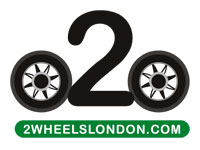It’s Christmaaaaassss
Yes, Noddy, the Pogues and Mariah are monopolising the airwaves, you can’t move for German markets and mince pies are being consumed at 9am. It’s Christmas alright.
It’s time to relax, have fun and do a bit of socialising, no doubt with a drink or two.
But where does that leave bikers?
Well, in trouble if we drink.
There is only one rule for the road if you ride two wheels: either leave the bike at home, or stick to soft drinks. Riding bikes and drinking are like whiskey and coke; two things that should never be mixed.
Ever wondered why…
Alcohol is a bike rider’s kryptonite; it lessens our skills, reduces our powers and affects our ability. Here’s a list of the things it does…
JUDGMENT: The ability to make sound and responsible decisions.
Alcohol affects your mental functions first, and judgment is the first to go, which means reason and caution are quickly reduced.
This can be affected by alcohol levels as low as .02% BAC. That is about half a pint of normal strength beer, or less than a small glass of wine (125ml).
CONCENTRATION: The ability to shift attention from one point of action to another.
Alcohol impairs a motorcyclist’s ability to concentrate on the multiple tasks involved in riding, such as vehicle speed, positioning, responding to other traffic on the road and signals/commands, and co-ordinating with other road users.
COMPREHENSION: The ability to understand situations, signs, and signals.
Alcohol impairs our ability to “interpret” situations, signs, and/or signals which a driver must understand and/or respond to quickly to be safe on the road.
It leaves us easily confused and not able to respond to emergency situations or to comprehend the meaning of simple signals (ie, running through a Give Way sign).
CO-ORDINATION: The ability to co-ordinate motor skills.
In many ways, this is the biggie. Alcohol impairs our ability to co-ordinate motor skills, beginning with the fine motor skills (putting key in ignition, steering and balance) up to gross motor skills.
Loss of co-ordination also severely affects reaction time and ability to react. Just when your lack of co-ordination is putting you at risk, those parts of your brain that help get you out of trouble are on go slow, too.
VISION & HEARING: Perception, depth and clarity of vision.
Here’s one I bet you didn’t know: Alcohol reduces your visual acuity by up to 32%. Visual acuity (VA) is better known as the clarity of your vision and your ability to recognise small details with precision.
It also reduces peripheral vision, resulting in tunnel vision, and impairs our ability to judge distance and depth perception (position of bike on road and other road users, for instance).
Finally on vision, it dilates your pupils, slowing down their ability to react to headlight glare, potentially leaving you riding ‘blind’ for a few seconds.
It even affects your hearing: alcohol reduces the ear’s ability to hear, muffling sounds, and interferes with the ability to determine the direction of sounds.
REACTION TIME: Ability to see and understand a situation, then take an action.
Alcohol in even the smallest quantities leaves us with severely impaired comprehension and co-ordination in particular, leading to an acute slowing down of reaction times by around 15-25% – and that’s for moderate amounts of alcohol.
Whichever way you look at it, riding and drinking just don’t go together.
If you fancy letting your hair down and having a drinking this Christmas, remember, that’s why Greater London has such good public transport!
But if you do have a drink, remember the effects will still be with you the morning after. Every year plenty of people do the right thing by leaving their bikes at home for the night out, only to still be over the limit the next morning. If you do party this Christmas, it’s always a good idea to apply an old RAF adage from the Second World War: ‘Leave 24 hours between bottle and throttle.’
